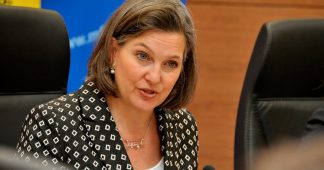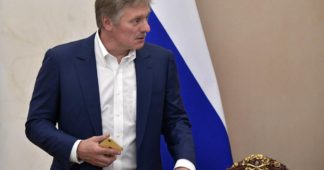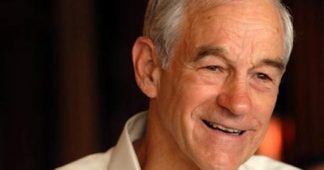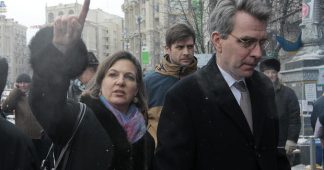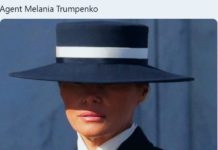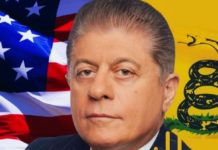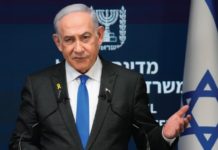The path of the EU and the U.S. on Ukraine is defining not only the West’s long-term interests but also the key geopolitical players involved. A Russian look at two key diplomatic players.
By Alexander Gabuyev
March 09, 2014
KOMMERSANT
When U.S. President Barack Obama held a series of consultations with his advisers about Ukraine in early December, some of them convinced the president that Washington should pursue a much more active policy.
“The president then said bluntly that the situation in Ukraine is not a top priority, quarrelling with Russia over this is not necessary,” a source close to the U.S. State Department tells Kommersant. “Syria and the Middle East are much more important.”
In fact, he was right. At the time, Ukraine was a concern to about five people in Washington, while the rest of the lobbyists and experts were relatively indifferent, and were more focused on China and Iran.
But the situation has changed considerably over the course of just a few weeks. Clashes in Kiev between the Berkut police and protesters were beamed around the world, and now the media is reporting about the developments in Ukraine every day.
“We call this the CNN factor,” a White House source says. “Ukraine is now interesting to a great many people.”
At the forefront of Ukraine policy is …
It’s clear which senior official in Washington is rooting hardest for Ukraine. “Of course, it’s Tori Nuland. Ukraine is her cause,” a source tells Kommersant.
It is no accident that Victoria “Tori” Nuland, who will turn 53 this year, has emerged at the forefront of U.S. policy on Ukraine. For almost two years, under Hillary Clinton, she was the press secretary for the State Department. When John Kerry took over in September 2013, she became Deputy Assistant Secretary for European and Eurasian Affairs, making her a key official responsible for operational work in the region.
Nuland has longstanding ties in this region. She is the granddaughter of Meyer Nudelman, a Jewish emigrant who moved to New York from Tsarist Russia. The Nuland ancestors, whose parents Americanized their name, would presumably have lived within the boundaries of modern-day Ukraine.
After graduating from Brown University with a bachelor’s degree, Nuland began a diplomatic career at the U.S. Consulate in China. The start of her ties with the USSR and then the post-Soviet Union began in 1988.
[rebelmouse-image 27087856 alt=”””” original_size=”240×329″ expand=1]
Nuland has worked for both Democrats and Republicans
Nuland worked as a Sovietologist in Ulaanbaatar, Mongolia, and then between 1991 and 1993, she worked at the embassy in Moscow. She emerged as a specialist in Russian philology under the tutelage of Strobe Talbott.
Sovietology and the State Department
In the late 1990s and early 2000s, Nuland worked in the central office of the State Department, the Council on Foreign Relations, and then in the U.S. permanent mission to NATO.
In July 2003, she was admitted to the apparatus of U.S. Vice President Dick Cheney, who led the neo-conservative wing of the Republican Party and helped define the ideology of George W. Bush’s foreign policy.
Although Nuland was a career diplomat who could work with both Democrats and Republicans, her friends say that she still speaks of her time with Cheney warmly. Her ideological proximity with Cheney may stem in part from her marriage to the historian and political scientist Robert Kagan of the Brookings Institution, who is often dubbed the most prominent representative of modern neoconservative thought on U.S. foreign policy.
Kagan himself rejects this label, but actively works with many conservative figures in Washington and was an adviser to John McCain during his presidential campaign in 2008. Kagan’s book The World America Made disputes the theory that the U.S has declined as a global superpower. Barack Obama quoted from it several times during his address to the nation in 2012.
Victoria Nuland was closely involved with Ukraine during the Orange Revolution.
“For her, it was a very important event — the transition from a post-Soviet model towards democracy — so if you talk about U.S. participation, Nuland in particular was one of the main actors behind the scenes on our side,” one U.S. expert close to Nuland says.
A second chance
But events in Ukraine after the Orange Revolution were a terrible disappointment to Nuland, especially after the now-fallen President Viktor Yanukovych came to power.
So the current events are a second chance of sorts. What helps her in the State Department is her reputation as an undisputed authorities on Ukraine, the same sort of esteem enjoyed by Stefan Fule, EU Commissioner for Enlargement and European Neighborhood Policy.
Within the European Union, Fule, from the Czech Republic, is considered a leading expert on Russia and has positioned himself as such. It is not just because Fule is a native of the Eastern bloc. He graduated in 1986 from the Soviet diplomatic Corps at the Moscow State Institute of International Relations (MGIMO) and is fluent in Russian.
Many MGIMO graduates from the former Soviet bloc or the Baltic republics are working in Fule’s office in Brussels.
“Only recently, the Germans and the French have begun to gently raise the issue that the European Commission’s expertise can be engaged by Russia,” a source in the German foreign ministry tells Kommersant.
Strategic moves
It was the experts from Fule’s European Commissioner team who wrote the text of Ukraine’s EU association agreement. To Fule, getting the agreement signed was one of the most important challenges of his career, sources say, because without it the whole eastern partnership program would have been a failure.
If the document is not accepted, the entire program of the European Commission leaders will be considered a waste of money. Fule himself is hoping to pursue a career within the new structure. He is considered a contender for the post of EU High Representative for Foreign Policy, the job currently held by Catherine Ashton.
One of the participants in consultations about Ukraine has said that Brussels is anticipating that an association agreement between Ukraine and the EU will be signed in the coming days.
But the European Commission has apparently rejected any search for common ground between Russia and the Eurasian Economic Union, which was agreed at an EU-Russia summit in January.
EU officials emphasised that the transfer of sovereignty from former Soviet states “into a supra-national organ, controlled by Moscow, is unacceptable. We have spent too much time and energy strengthening their independence from Russia to recognise this union and this commission.”
crunched by Brendan Cole
Published at worldcrunch.com
We remind our readers that publication of articles on our site does not mean that we agree with what is written. Our policy is to publish anything which we consider of interest, so as to assist our readers in forming their opinions. Sometimes we even publish articles with which we totally disagree, since we believe it is important for our readers to be informed on as wide a spectrum of views as possible.
